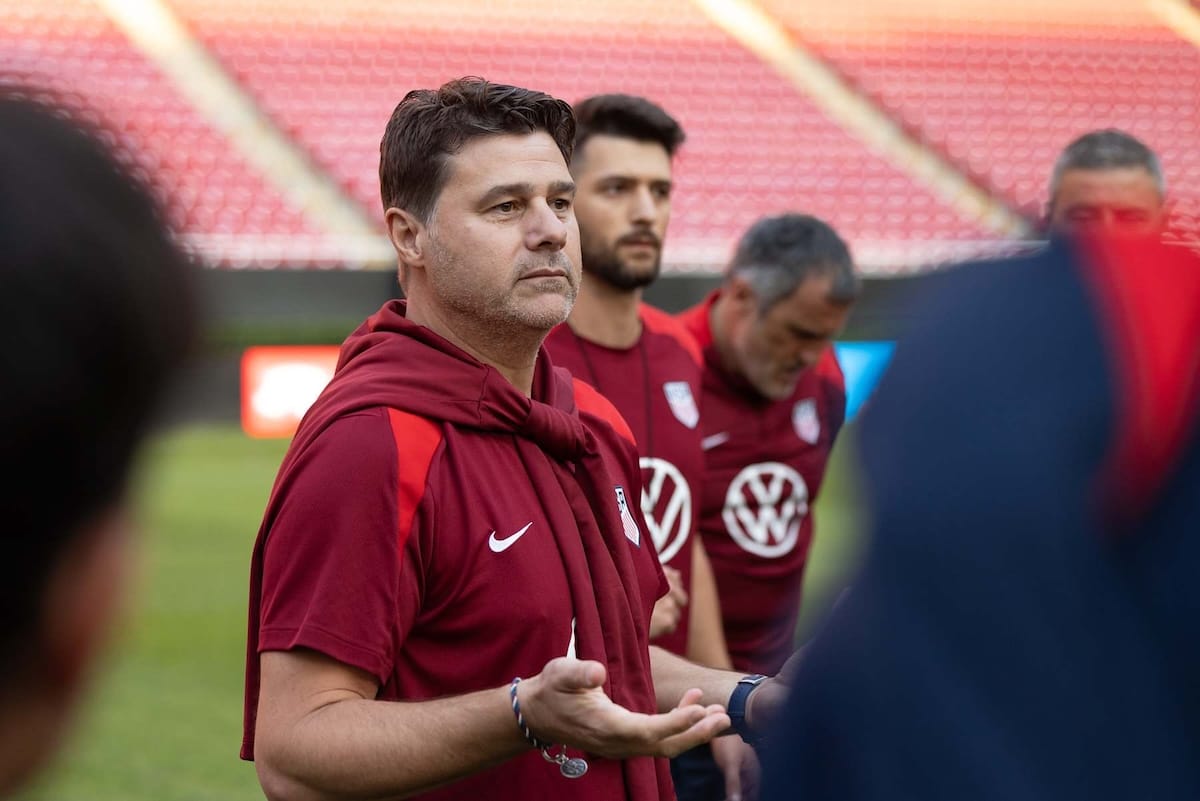After being hired in September, Mauricio Pochettino has only ten international windows – nine regular FIFA dates, plus the 2025 Gold Cup – to prepare the U.S. men’s national team for the 2026 World Cup. After each window, “Ten Windows” will dig into key developments and chart the USMNT’s progress towards 2026.
Results this window:
USA 2, Panama 0 (Musah 49, Pepi 90 +4); Mexico 2, USA 0 (Jimenez 22, Huerta 49)

The story this window:
So Pochettino can’t work miracles.
For 15 minutes against Mexico, Gianluca Busio let Gregg Berhalter’s army of detractors believe they might have been right.
Throw a rock in any Berhalter-related Twitter thread from the past five-plus years, and you’d hit a USMNT fan swearing that a change in head coach would pay immediate dividends in the performance of U.S. players. In the opening moments of the Americans’ defeat in Mexico, you’d be forgiven for seeing those dividends in Busio, who’d flashed plenty of his ample on-ball talent in previous appearances but had rarely shown the level of overall activity necessary for game-changing midfielders at the international level.
Could Mauricio Pochettino’s arrival solve that problem in a handful of training sessions?
The early evidence Tuesday pointed towards “yes, actually”. Over the game’s first quarter-hour Busio challenged for headers, won tackles, and set off on one pulse-quickening run past multiple El Tri players to win a free kick in the attacking third. But Busio’s imprint on the game had already begun to fade by the time Raul Jimenez scored in the 22nd minute, and after that – as it did for every American on the field – that imprint disappeared almost entirely.
Per Brian Sciaretta, Busio would finish the first half with just eight completed passes, or three fewer than Andres Guardado completed before being subbed off in the 20th minute.
This isn’t to pick on Busio, who had no shortage of company in the ineffectuality department Tuesday. It’s not to suggest the 22-year-old doesn’t have a future with the USMNT, either. It’s not even to suggest that Pochettino won’t be a boon to Busio’s international career as the two of them work together over the coming months and years.
It is, however, to suggest that those coming months and years will be necessary for Busio to deliver on his vast potential with the USMNT, and that Pochettino does not, in fact, possess a magic wand he can wave to render Busio’s previous weaknesses nonexistent.
And as that goes for Busio, of course, so it goes for the USMNT roster writ large. Despite the overheated “golden generation” talk, the player pool remains much as it has always been – a handful of near stars, a strong-but-not-world-beating first 11, and a notably weaker second- and third-string. Christian Pulisic may be setting Serie A on fire at Milan, but that doesn’t mean the 22-year-olds at PSV or Middlesbrough will be ready to handle El Tri on the road.
Pochettino may be the highest-profile, most internationally-renowned manager the U.S. have ever had. But he’s not a miracle worker. He’ll have to solve the problems posed by the U.S. player pool the same way USMNT coaches have always solved them – learning his players’ strengths and weaknesses, developing a tactical plan that caters to those strengths and minimizes those weaknesses, and instilling the confidence necessary to execute it.
Accomplishing that well enough in one training camp to defeat Mexico in Mexico was always going to be difficult, and doing it without Pulisic, Adams, Weah, McKennie, Balogun, Reyna, Dest, etc. might have been impossible.
But regardless of the names missing, that the names present couldn’t do more than stutter past Panama or make Mexico sweat in the slightest shows how much work Pochettino has ahead of him. The silly illusions about an instantaneous transformation accomplished via coaching sorcery are gone. What’s left is the reality of the slow transformation accomplished via smart, hard effort.
Pochettino and the USMNT have nine windows remaining to make that transformation happen. Watching them get to work, together, won’t be any less exciting than watching them make it happen overnight.







